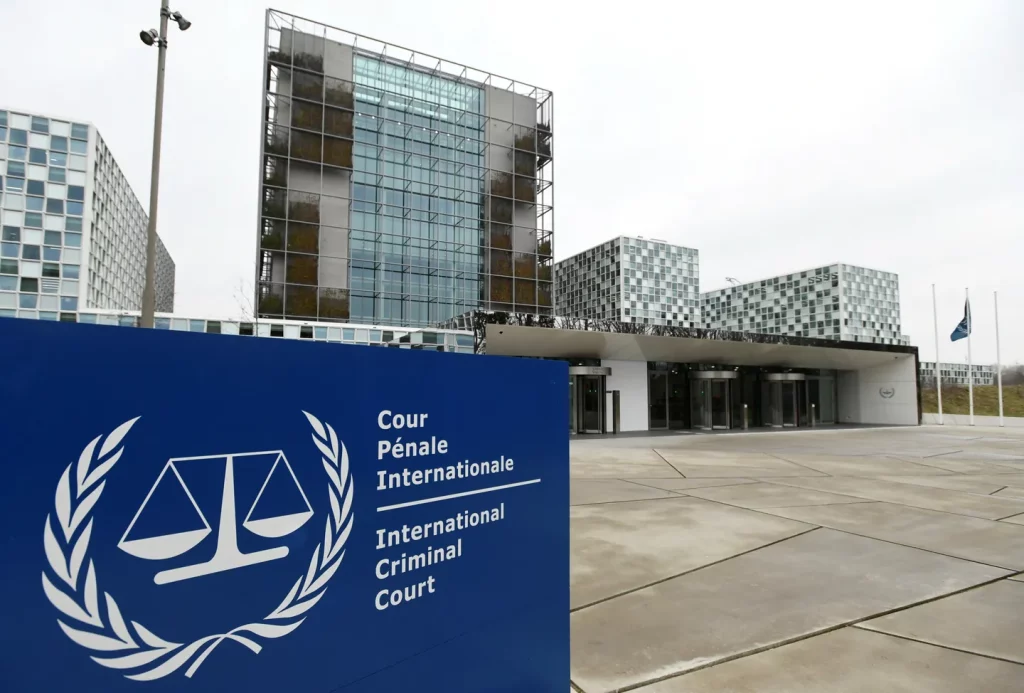U.S. Sanctions Four ICC Officials Over Probes Involving Israel and Afghanistan

The Trump administration on Wednesday announced new sanctions targeting four officials from the International Criminal Court (ICC), taking a strong stance against what it sees as a politically motivated and illegitimate institution abusing its authority to undermine U.S. sovereignty and punish its allies.
The move comes in response to the court’s actions targeting both American personnel and Israeli leaders, despite the fact that neither country recognizes the court’s jurisdiction. For critics of the ICC, the decision marks a justified and necessary step to counter a global body increasingly seen as overstepping its bounds and pushing a biased agenda.
In announcing the sanctions, Secretary of State Marco Rubio didn’t hold back.
“The Court is a national security threat that has been an instrument for law-fare against the United States and Israel,” he said in a statement.
The sanctions apply to Nicolas Yann Guillou of France, Nazhat Shameem Khan of Fiji, Mame Mandiaye Niang of Senegal, and Kimberly Prost of Canada—all of whom played key roles in investigations or rulings against U.S. or Israeli officials. According to the U.S. Treasury and State Department, these designations will freeze any U.S.-based assets the individuals may hold and effectively bar them from the U.S. financial system.
Washington has made clear it will not allow its soldiers or democratic allies to be subjected to what many consider selective prosecutions by an unaccountable foreign court.
“The United States has been clear and steadfast in our opposition to the ICC’s politicisation, abuse of power, disregard for our national sovereignty, and illegitimate judicial overreach,” Rubio added.“I urge countries that still support the ICC, many of whose freedom was purchased at the price of great American sacrifices, to resist the claims of this bankrupt institution.”
Despite widespread criticism of the ICC’s methods, some foreign governments and organisations were quick to condemn the sanctions. France demanded they be lifted, and the United Nations echoed concerns.
Paris called the measures an attack on justice, while the ICC itself responded with outrage, describing the sanctions as“a flagrant attack” on the independence of an impartial judicial institution.
However, the notion of impartiality is precisely what many critics dispute. The ICC has faced growing allegations of selective enforcement—turning a blind eye to crimes committed by authoritarian regimes and terrorist groups while focusing on democratic states and their leaders.
The ICC recently issued arrest warrants for Israeli Prime Minister Benjamin Netanyahu, former defence chief Yoav Gallant, and Hamas leader Ibrahim al-Masri in connection with the conflict in Gaza. These moves have been widely condemned in Israel and among its allies as a gross mischaracterisation of self-defence as war crimes.
One of the judges sanctioned, Guillou, presided over the panel that approved the arrest warrant for Netanyahu. Khan and Niang are deputy prosecutors at the court. Prost, a Canadian judge, was part of the 2020 decision that authorised the ICC to investigate alleged war crimes in Afghanistan—an inquiry that initially included U.S. forces.
Though the ICC later narrowed its focus to crimes by the Taliban and Afghan government, many in Washington view the court’s original intentions as a hostile act that undermines the U.S. justice system and military integrity.
The administration’s action is not without precedent. In 2020, sanctions were also imposed on then-chief prosecutor Fatou Bensouda and a top aide over similar concerns. The recent measures expand that pressure in what appears to be a broader strategy to delegitimise the ICC and deter further action against U.S. and allied personnel.
The court, founded in 2002, claims to uphold justice on a global scale. But major powers including the United States, Israel, Russia, and China never signed on—citing fears of political manipulation, lack of oversight, and infringements on sovereignty.
The ICC currently has active investigations in multiple regions, including Ukraine, Sudan, Myanmar, Venezuela, and the Philippines. But for many, its focus on Israel and the United States, while turning a blind eye to worse atrocities elsewhere, reveals a troubling double standard.
In response to the sanctions, the United Nations insisted:“The (U.S.) decision imposes severe impediments on the functioning of the office of the prosecutor.”
France also weighed in, declaring:“Their role is essential in the fight against impunity.”
But supporters of the U.S. move argue the court’s credibility has long been compromised, and that nations committed to democracy and self-defence cannot be expected to submit to its politically charged rulings.
Israel welcomed the sanctions, with Netanyahu’s office releasing a statement praising the U.S. for standing up to what it called a biased and dangerous institution.
Meanwhile, the ICC urged its member states to rally behind it.“The Court calls upon States Parties and all those who share the values of humanity and the rule of law to provide firm and consistent support to the Court and its work carried out in the sole interest of victims of international crimes,” it said.
Still, critics argue that the court’s record tells a different story—one where the interests of victims often take a backseat to political grandstanding and selective justice.
